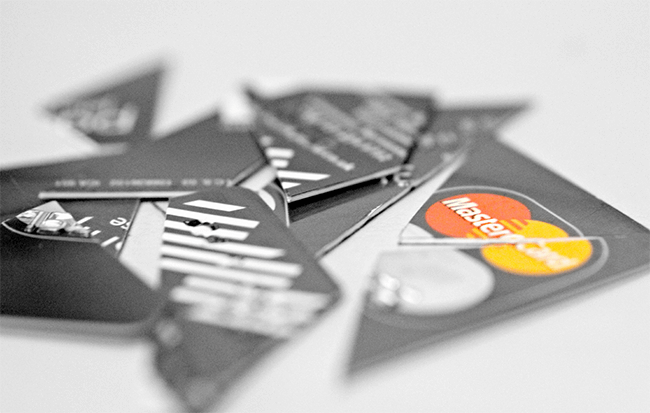Seven Silly Personal Finance Myths That Are Making You Poor
If you’ve been a part of Academy Success for any decent amount of time, you’ll know that I tend to think a little bit differently than the masses.
Ultimately, the masses are largely ordinary, and if you wanted to be ordinary, you wouldn’t be reading this right now.
So today, as part of our goal to create a better financial life for you this year, I challenge you to behave more like the financially successfully by busting open a few myths you may have ingrained into your mind – probably from too much exposure to pop culture over the years.
It can be tough to break these beliefs if you’ve been exposed to them for your entire life, but I’m going to do my best to help you do so.
Get these seven financial myths out of your mind, and get on your way to leading a more rich and fulfilling life that is far more likely to pay off for you in the long run.
You Should Stop Buying Your Morning Coffee

I absolutely can’t stand when I see talking heads on TV, or read a financial blog that talks about saving money through eliminating small expenditures.
Sure, it can work in theory, but you have to have super powers when it comes to discipline, and you have to do this EVERY SINGLE DAY, probably multiple times per day. No one has that kind of self control over human nature, especially once the habit is ingrained and part of your life.
Not only is it going to be a huge fight in your mind every single day, but you’re also denying yourself pleasure and freedom.
What can you save in a year, even if you saved $10 a day on these types of purchases? Somewhere around $3600.
But that’s in an ideal world. It’s more likely you’re going to save around $1,000, call it $1,500 max, and you’ll probably end up spending that on something else anyway.
So what do you do instead? Behave successfully, like a rich minded person would behave.
Focus on larger financial victories.
- Minimize or eliminate costly monthly subscriptions (you only have to do this once)
- Spend on the things you absolutely love. Save on the things you can do without (this can really free your mind)
- Pay down high interest debt quickly using financial automation
- Drive a more cost effective vehicle
- Negotiate a raise at your day job
- Find ways to make freelance income
- Routinely invest in income generating assets
A High Income Makes You Rich

Have you ever heard of the term, “the millionaire next door”?
Right now, you could be living next to full-fledged millionaires and not even know it. In fact, it’s very likely that you know a few personally, but have no idea they’re loaded and have complete financial freedom.
These types of people live modest yet very comfortable lives, usually are part of the upper middle class, don’t go around flaunting what they’re worth, and are well-grounded.
But they carry seven figure bank accounts because they are educated and skilled with their money management.
They normally don’t even do anything all that special.
- They’re not CEOs of billion dollar companies.
- They’re not serial inventors.
- They’re not internet rockstars.
- They don’t make hundreds of thousands of dollars per year.
They’re just ordinary people that understand money.
Now compare this to someone that makes the same amount as the millionaire next door, but tries to appear rich by flaunting their money around.
They own expensive cars, have gigantic houses, spend mercilessly, and are always doing whatever they can to make people envy them for their riches.
But you know what?
These types of people are in debt up to their eyeballs, and often times end up having to file for bankruptcy because of the lifestyle they want to appear like they can have, especially if something unexpected happens.
This is a tale of two types of people with the exact same income. The first is rich. The second is poor.
My point here is that richness is completely relative to the lifestyle you live. If you’re always living above your means, there is no way you can ever be rich and financially free.
All Debt Is Bad

Debt might as well be an expletive in the financial world. It’s just a negative word to hear, but not all debt has to be bad.
There are some types of debt that I firmly believe are necessary in this world at some point within your life.
For instance, I’ve paid off over $35,000 in debt in my lifetime that I feel was quite responsible, and very much enhanced my life (and even saved it at one point).
- Student loans for my Master’s Degree
- An engagement ring for my wife
- LASIK surgery in my 20s
- My first “grown up” car
- Medical bills for an appendectomy (you will not be missed, useless organ)
It’s important to note that none of this debt came with an interest rate over 5% and all of it was paid off within 18 months or less.
A couple of the keys to managing debt responsibly are to only take on debt with low interest rates, and to only take on debt you can afford to pay off very quickly.
Just remember this principle when it comes to debt. If it enhances your ability to earn, or greatly increases your quality of life without getting you into a money pit situation, you’re probably safe taking on that debt – as long as you’re smart about paying it off quickly.
You Should Only Save If You Have Extra Money

This is a SUPER backwards way of thinking if you want to lead a wealthy life. I just wrote about this in more detail in this post, but I can’t say this enough. This one principle is what will separate the vast majority of the rich from the poor.
You are a human. Humans like to spend money. We actually derive a lot of pleasure from doing so.
What that means is you’re highly unlikely to ever have any “extra money” because spending feels so good. Even if you think you have everything you need, you’re very likely to find something to buy anyway.
Unless you are putting money aside before you pay bills and spend for pleasure, you’re just not going to save. It’s human nature.
Save first, then spend.
You Should Never Have a Credit Card

This is probably the one I hear most of all. “I only have a debit card. Credit cards are too risky.”
Really….? Like…
Really?!
Credit cards, when used correctly, are awesome.
For example, in the last two years, I’ve earned over 150,000 Southwest miles for free travel (of course I’ve spent some). This is about 7 roundtrip flights. I also built my credit to a point to where I was able to get a very low interest rate on my home.
If I used a debit card for everything, I would have gotten absolutely nothing in return.

According to a study done by J.D. Power and Associates, over 75% of people have at least 1 credit card. But still, even with such high adoption, some people still refuse to carry a credit card because of the horror stories they hear. They’re brainwashed that credit cards are evil.
Yes. Credit cards allow you to spend more than you have to your name and they can be risky if you’re financially irresponsible, but they have so many advantages when they’re used correctly (including adding significantly to your debt / credit ratio), that it’s silly to pass them up.
Let’s examine the social component of only having a debit card for a moment.
Carrying only a debit card means you’re probably always on the verge of grazing up against a zero balance trying to manage your spending so you don’t run out of money. You’re focused only on “not going broke.”
I commend you for not getting into credit card debt, but if you’re in the mindset of always doing what you can do to avoid being completely broke, that’s not a very positive mindset towards building wealth. You also can’t easily monitor your spending because you never have a cumulative balance of purchases to look at. You just have your running bank balance.
Unless you have a solid automated savings and investing strategy (something we’ll talk about soon enough), it’s going to be tough for you to ever save anything operating in this mindset because you’ll be too focused on those small numbers all the time.
If you want to ease your way into taking advantage of the perks of credit cards but are scared of the potential risks, try this.
Consider getting a rewards card like the Chase Southwest Visa, or a simple Chase Freedom card. Then set up simple balance alerts when you hit certain balances in your bank account and on your credit card. Stick to these and just make sure you have enough to pay it off in full every month (this is absolutely key).
This will keep you from focusing on the daily fluctuations in your bank account, and help you focus more on the bigger picture.
Additionally, if you EVER have a month where you carry over a balance, make sure you fully understand why it happened (did you buy things you couldn’t afford, or did something bad just happen?), and make sure to pay it off completely before spending again.
Yes, credit cards can be evil if you use them like the industry wants you to (making minimum payments and paying them craploads of interest every month), but if you manage them responsibly, pay them off every month, and focus on building wealth, you’ll build your credit score, and you’ll get some great benefits along the way.
You Have to Be a Genius to Invest in Stocks

A lot of people keep their distance from the stock market because they have the idea in their head that it’s too difficult for them to get involved with, or only for the super smart.
Easy for me to say, right?
Ok I get it. Yes, I do write about personal finance. I do have a Master’s degree, and I’ve been doing this stuff for a long time, but there was a point in my life when I knew SQUAT about investing. But at that point I did know one thing. I knew that investing my money was going to be a great way to build wealth over time, so I dug in and figured it out.
I lost some money here and there and learned some hard lessons, but also managed to offset what I lost with some gains as well.
I could give you a bunch of advice about how to build a portfolio, but it’ll probably just overwhelm you, and it’s tough to listen to investing advice if you’re just getting started anyway.
This is one of those things you just have to get your hands dirty with to really get it, then figure out better ways when you’re more confident. My advice is if you want to get involved, start with the Investing 101 course at Investopedia to get a background about basic terminology and strategy, then just open a brokerage account at a place like Scottrade or Sharebuilder and break yourself in with a few hundred bucks.
Only invest what you’re willing to lose, think long-term, and stick with blue chip stocks at first until you learn the ropes. From there you’ll gain confidence and feel better about it with some experience under your belt.
You could also go with a more hands-off place like Betterment, which is a solid company that I think is going to be a big player in the future of investing for Gen Y, but you’re not going to learn a lot of investing skills there.
Sure, there are some mega pros out there that make billions doing nothing but managing money, and it’s likely you’re never going to be on their level, but you don’t have to be.
Just get started and you’ll quickly see that even with a basic stock market education, anyone can be halfway decent at investing.
The Government Will Take Care of You When You Retire

According to The Motley Fool, pensions across behemoth companies like Ford, UPS, and Goodyear are carrying huge deficits, which means they’re risking running out of money to pay their retirees. This has caused them to legally have to contribute more annually to meet their financial obligations, meaning pensions for already retired employees are eating away at profits and loyalty options for existing employees.
Some companies, GM for example, are eliminating pensions altogether and switching to 401k plans. This allows the employer no financial obligation after their employee retires, and still leaves a guaranteed income for the retiree.
Additionally, social security isn’t something you should count on. According to the Social Security Administration, not only is it likely to go through a major reform in the next decade, which means who knows what will happen to those dollars when you’re no longer working, but its payout is also pretty meager.
Even currently, you’re looking at a payout average of barely over $1,000 a month for today’s retirees. Needless to say, this would be pretty difficult to survive on, much less live gloriously in your golden years.
What this means for the workforce today is that it’s no longer guaranteed that you’ll have anything coming to you when you retire, and as today’s working generation ages, it’s likely to only get worse.
If you aren’t participating in a employer 401k plan, saving in an IRA, or investing for your future in some other way, what are you going to do? I don’t know about you, but I don’t want to be scanning bar codes or combing the beach with a metal detector to make ends meet when I’m in my golden years.
If you don’t want to be poor in retirement, I recommend you seriously start considering your retirement plan today.
So, Now What?
I just gave you seven myths that I want you to try to break. Odds are you don’t believe all of them, but you may believe some.
Focus on changing your mindset with one or two of the heaviest hitters for you, and you’ll likely find yourself in a much better financial position because of it.
And as always, let me know how I can help. Toss me a comment or send me an email here. I read every single one.




Top reply. Really well explained and justified Bilgefisher 🙂
Finally someone gets it!
Jonathan,
I disagree with your statements. Not all debt is bad. I have leveraged debt very well for my business. It has taken me much further in a far shorter amount of time. You just have to use debt wisely. My debt is used to make me money.
Credit card companies make their money from those that don’t pay in time. Those that do pay ontime are able to reap the rewards. Don’t assume everyone is bad at managing their credit cards. The OP is going beyond finance 101 that the Dave Ramsey’s of the world talk about. As for Dave R, Suzie O. or Robert K. Did they become wealthy from saving or selling books? Their advice is good for those that are right at the very beginning of financial learning, but are quickly outgrown.
Jason
Wow! After all I got a weblog from where I know how to actually obtain useful data regarding my study and knowledge.
That’s great Chuck. I’m always interested in against the grain strategies. I’d love to hear more about your debt free lifestyle. Email me – [email protected]
Nice article, but beg to differ a bit.
“If you try to pay cash for everything in your life, you’re going to struggle to live a decent lifestyle, or you’re never going to own anything. ”
That is a Blatant false narrative that has been foisted on the American Public since the 1950’s, in my opinion and back ed by history.
We have owned our autos and homes for years.
My grandparents and parents carried, little debt. All short term, were “Blue Collar” citizens and amassed very substantial fortunes.
Not paying the Dummy Tax of interest,allowed them to accumulate and then enjoy Interest income.
In my Twenties and “College Educated” I ignored their examples and bought into the Borrowing PITCH fest.
Happy to say I learned my lesson quickly…
And have enjoyed a comfortable Debt Free lifestyle for the past 40 years.
Actually our total living expenses are completely covered by my Social Security Income.
I am still involved in my businesses and we use that income for personal “Fun” and helping others.
I just hope I’m awesome enough to rock a metal detector when I’m 90 and not care what I find.
Yeah metal detecting!! I’m totally gonna be that guy, but like 30 years younger when retired 🙂 And I actually agree with all 7 of your points, though some more strongly than others. Great read man, thx.
Thanks for the comments.
Coffee is a metaphor for a lot of things. You can’t wean yourself off of everything you ever want. That’s the point. Maybe I should’ve used a different image 🙂
I’ve read Ramsey’s stuff. I know he’s helped a lot of people, but I’m not a fan of most of it. He’s why a lot of people think small and spend their lives cutting back rather than focusing on enhancing their lives.
I want people to think on a larger scale, to stop thinking $100 is a lot of money, to figure out ways to increase their earning potential so they can have the things they want.
Regarding debt – If you try to pay cash for everything in your life, you’re going to struggle to live a decent lifestyle, or you’re never going to own anything. Billionaires are billionaires because they used debt wisely in their lives to increase their income generating assets over time.
This right here is a post from someone who didn’t do their homework or doesn’t know enough about finance and then decides to write a post about it with the little information he/she has.
1. Dude if you can’t wean yourself off of coffee just because you want/need to, then finance is not the problem: YOU are. You need to focus on how your brain works (literally) so you can overcome temptations or things that come your way. See Dr. Amen of the Amen Clinic.
2. Mostly right that the job doesn’t create instant money. However, the main difference between a million/billionaire is their ability to save money from unnecessary expenses. Most of them are the cheapest people alive (some sarcasm).
3. All debt IS bad. That’s why it’s a debt. AND those million/billionaires mostly aren’t in debt. They pay their stuff off. Interest and stress are not worth it just to have debt. Read Dave Ramsey’s book.
4. Pretty much right about saving: save BEFORE you spend.
5. Credit cards are a way for credit/financial companies to keep people hooked. No one needs one. If you would save your money properly, over time you could buy those southwest tickets. And the money you spend on a membership and interest rates you could buy those tickets outright.
6. I agree that you don’t have to be a genius to invest. Invest with the help of professionals on HIGH return rates or MOSTLY guaranteed yields.
7. I agree the government will not be your savior. That’s why people need to ignore most of your points so they will have the money saved already and won’t be scared or living on other people because they: didn’t want to miss the PLEASURE of coffee (money is not about pleasure. It’s about smart decisions), kept interest sucking debt so their CREDIT would be good, ignored saving because being rich is relative (everyone should save like they were poor. “Live like no one else so you can live like no one else” – Dave Ramsey), and kept those credit cards because of its “positives”.